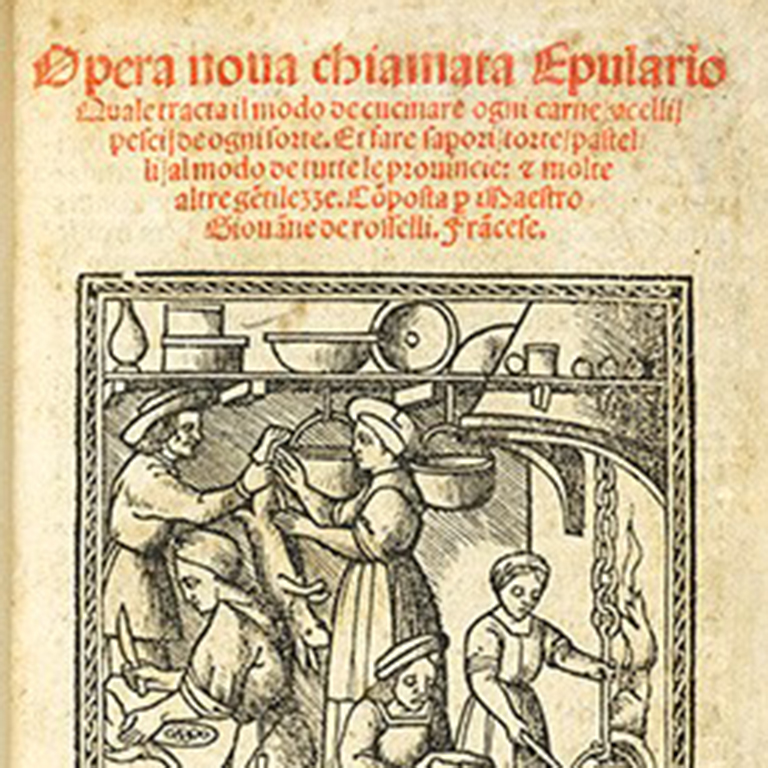Italy is known worldwide for its cuisine, but when were the recipes for sauces, breads, and risottos first written and attributed to an author? This is the topic doctoral student Lino Mioni explores in his research, recently presented at the Renaissance Society of America conference on March 23 and upcoming as part of an Early Modern Food History Workshop at the Newberry Library in Chicago on April 6. In the 1460s, Maestro Martino wrote the first cookbook in the Italian vernacular attributable to an author. Maestro Martino’s Libro de Arte Coquinaria was produced in manuscript form but was soon incorporated into a treatise on health and wellness written in Latin by Bartolomeo Scappi, known as Platina, De Honesta Voluptade et Valetu dine (1474), the first printed book on cooking. The content of Maestro Martino’s Libro de Arte Coquinaria was published 30 times in different printed editions in the 16th century in vernacular Italian, as gastronomy was increasingly seen as distinct from medicinal and religious concerns.
In order to analyze this important work in the context of cultural developments of the early Renaissance, Mioni proposes a digital edition of Martino’s book. There are three manuscripts of the original available for research purposes (and a fourth in a private collection). Mioni’s plan includes cross-referencing all three in the digital edition as well as providing a mark-up of lexical elements specific to cookbooks, in the categories of measurements, tools, modes of preparation, and ingredients.
Mioni was recently awarded a 2018-19 College of Arts and Sciences Dissertation Year Fellowship to complete his dissertation on Martino’s work and its significance. Discussing two 16th-century printed editions that use Maestro Martino’s text, Mioni says “What is remarkable…is that both books legitimize themselves and are directed to a new audience: cookbooks have ceased to be personal notes and they transitioned into a new public domain. Between the anonymous collections of the 14th century and the monumental culinary treatises of the second half of the 16th century, Maestro Martino’s Libro de Arte Coquinaria represents the key transition between those culinary texts whose main goal is to serve a restricted community and later culinary works with a broader audience and circulation.” Thankfully for the rest of the world, Italian cookbooks, largely regional in character, were broadly disseminated starting in the 18th century. Buon appetito!

 The College of Arts
The College of Arts